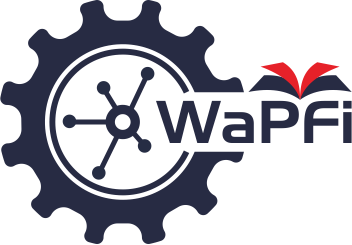Efektivitas Model Pembelajaran PjBL-STEAM Terhadap Kemampuan Pemecahan Masalah Peserta Didik
Abstract
PjBL-STEAM is an instructional approach that integrates problem-solving with the concepts of science, technology, engineering, arts, and mathematics. Development of problem-solving skills: PjBL-STEAM emphasizes the development of problem-solving skills that involve critical thinking, collaboration, and creativity. Through problem-based learning integrated with STEAM concepts, students have the opportunity to actively sharpen these skills. This research aims to investigate the effectiveness of the PjBL-STEAM learning model using the pretest-posttest control group design method, involving two groups of the PjBL-STEAM learning model using the pretest-posttest control group design method, involving two groups of high school students. The experimental group receives instruction using the PjBL-STEAM model, while the control group receives conventional instruction. The students' problem-solving skills are measured using a valid and reliable test instrument. The research findings show that the PjBL-STEAM learning model significantly improves the problem-solving skills of high school students. These findings indicate that the PjBL-STEAM approach can be effective in enhancing the problem-solving skills of high school students.
Downloads
References
Anjasari, R. (2022). Pengaruh Model Project Based Learning (PjBL) Terintegrasi STEM Terhadap Kemampuan Berpikir Kritis Siswa Pada Pembelajaran Tematik Materi IPA Kelas 5 Di SDI Buana Malang. Malang.
Asri, N. (2020). Penerapan Model Pembelajaran PjBL (Project Based Learning) Berbasis STEM Untuk Meningkatkan Kemampuan Pemahaman Konsep Matematis Ditinjau Dari Gaya Kognitif Peserta Didik. Lampung.
Cohen, J. (1988). Statistical Power Analysis for the Behavioral Science. United State: Lawrence Erlbaum.
Creswel, J. W. (2016). Research Design Pendekatan Kualitatif, Kuantitatif, dan Mixed. Yogyakarta: Pustaka Pelajar.
Isnaini, S. (2018). Peningkatan Kemampuan Pemecahan Masalah Dengan Metode Problem Solving Pada Mata Pelajaran Matematika Siswa Kelas IV SD Negeri 2 Bumiharjo . Yogyakarta.
Kemendikbud, 2019. Kemendikbud. [Online] Available at: https://www.kemdikbud.go.id/main/blog/2019/12/hasil-pisa-indonesia-2018-akses-makin-meluas-saatnya-tingkatkan-kualitas
Kemendikbud. (2019, 12 Rabu). Kemendikbud. Retrieved from Kemendikud.go.id: https://www.kemdikbud.go.id/main/blog/2019/12/hasil-pisa-indonesia-2018-akses-makin-meluas-saatnya-tingkatkan-kualitas
Richard, H. (2018). Analizyingh Change/Gain Score. Bloomington.
Sugiyono. (2017). Metode Penelitian Pendidikan Pendekatan Kuantitatif,Kualitatif, dan R&D. . Bandung: Alfabeta.






